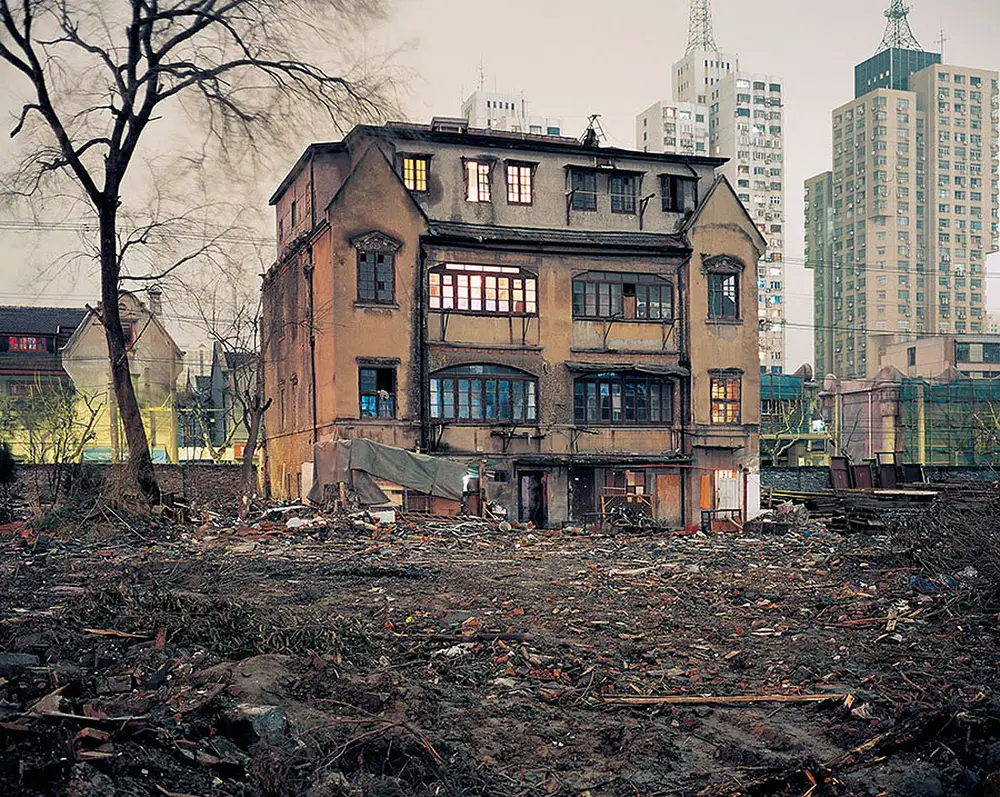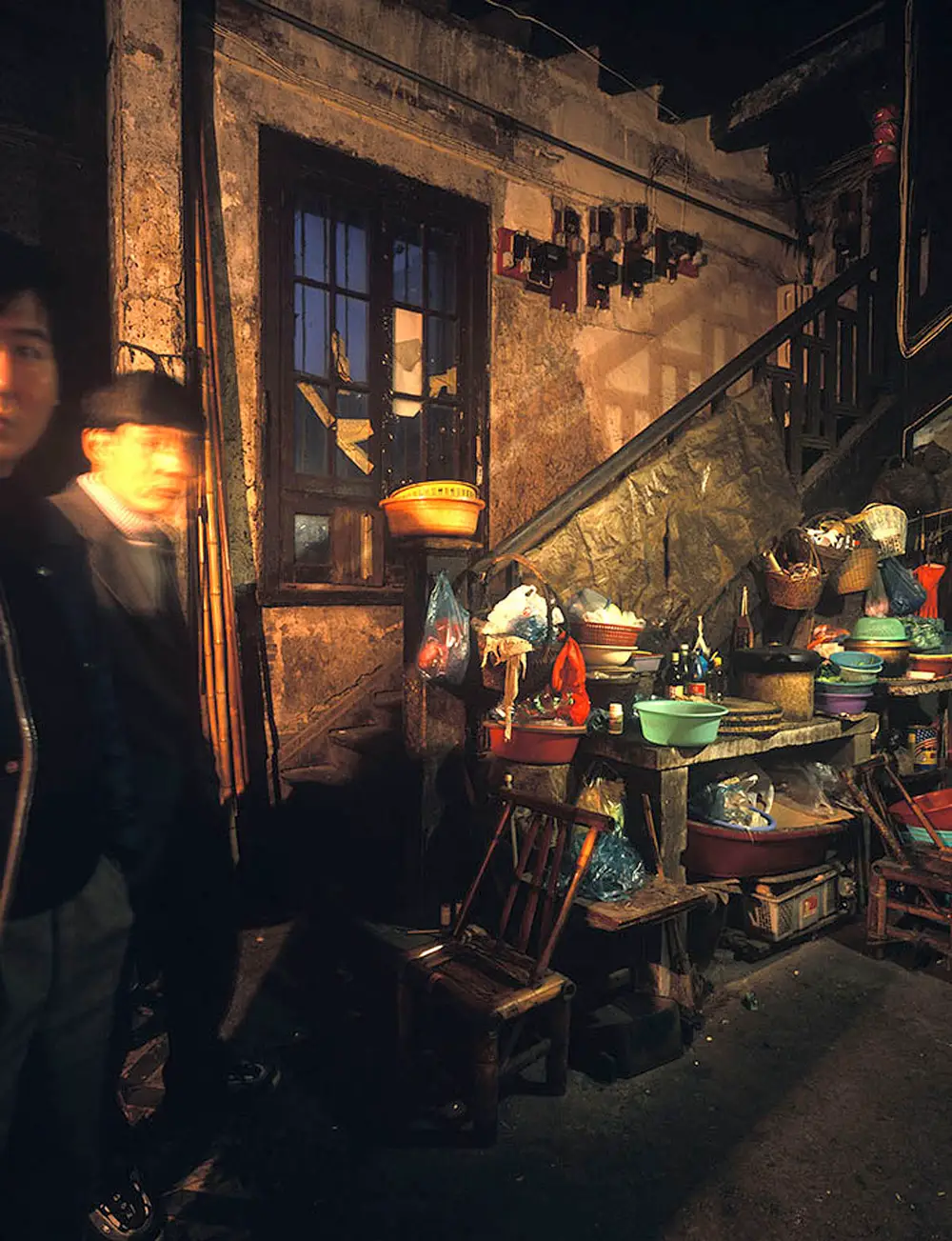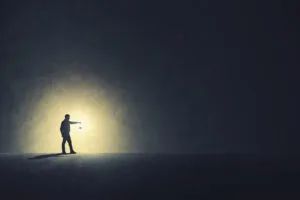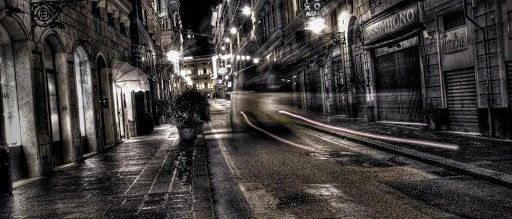
April is the cruelest month

When I woke up, April had already passed. In the long wait, this April is over before it even begins. This makes me give up hope for May.
When I was young, I read TS Eliot's "The Waste Land", and the first sentence "April is the cruelest month" shocked me, but it didn't stop there. After all, my understanding of it was limited to rhetoric. . Although I read the commentary, I knew to some extent that it implied theological meaning of death and resurrection, but it was alien to me, because I was too young at the time and lacked the corresponding life experience.
Up to now, I dare not say that I have understood this long poem, which is notoriously obscure, but in this April, the opening line of the poem suddenly reappeared in my mind again - that is certainly not its original meaning, and Filled with my own experience perception. Countless people are suffering in the wasteland, and after the suffering, the city does not know when it will be resurrected.
This ruthless utopian experiment proves to us that the kind of "quiet time" is actually vulnerable. Everyone was forced to interrupt their normal activities and turn back to the most basic issues of survival. The trend of "stockpiling" spread to various places is a natural reaction to being frightened by Shanghai. That's not even "defending life" because most people just seek to "survive" to live, which is a step backwards, whether we admit it or not.
I know that there will be many people who will say that this is just hypocritical and exaggerated, "to endure it and it will pass", and I have seen countless jokes that have emerged, but with all due respect, although there is no shortage of black humor in these bittersweet Toughness, more often than not, actually dissolves real pain, even frivolous.
After forty years of prosperity, a generation of freedom from want and fear now finds that the castle on the beach has vanished overnight. We should be ashamed of how quickly we have adapted to this deprived, undignified life—of course, this shame may only come after the deprivation is over, like the stamina of a drink, which many people have no time for.
Shame means "we ought not to be like this" and that evokes other emotions. Nietzsche said that what people are really angry with about suffering is not the suffering itself, but the meaningless suffering. Many people are not unaware of the cruelty of this life, but they are neither ashamed nor angry, because they accept it with a fatalistic attitude: "No way".

Many people are suffering, but understanding what it means to suffer is another matter. It's not just starvation, depression or "grievances", it's an oppression of the person himself. The ego that used to be able to stretch a little is now hardened after a frost. This invisible wound may accompany us for the rest of our lives.
That is a widely prevalent attitude to life, and the result of being able to endure hardship is to be prepared to endure more hardships. In cramped corners, people silently curl up in order to survive.
Like many people, this month, I also lived the same life every day, "seven steps from the window to the door, and seven steps from the door to the window". When the whole city is silent, there is boundless noise and commotion on the Internet. In that virtual space, I can see all kinds of living beings, see the proof that people are alive, and see that real people are dying.
Among so many dead, the most memorable one is the death of the civil servant Qian Wenxiong. Because unlike most other people, he was not passively affected, but took the initiative to die - he was neither unable to seek medical treatment, nor died of exhaustion on the job, but hanged himself in the office. Considering that he was in a DINK family, his wife was in a terminal stage of cancer, and he was very emotional, he couldn't have thought about what his death would mean to the family. He could have never died.
At the beginning of the epidemic two years ago, a staff member of the Cabinet Office in Saitama Prefecture, Japan, who was in charge of evacuating overseas Chinese from Wuhan, jumped off a building to commit suicide because he could not bear the enormous pressure of widespread criticism. If a person just executes orders mechanically, without bearing any consequences, I am afraid he will not commit suicide. That's why it's deplorable: here, suicide is a manifestation of human nature.

All of this, if not recorded and written, is likely to disappear from our memory before long. In fact, this has already begun. The Economist said that China's online records are like disappearing electronic ink (Across Chinese social media, the story of the lockdown has been typed out in a kind of disappearing, digital ink).
It's not just because of the constant erasure, but because many people don't realize what's going on - how can a person remember things they haven't seen? What's more, in our daily life, forgetting is often a necessary survival strategy, because people don't want to carry with them the pain they can't digest, and would rather clear these ghosts of the past and pretend that they have started a new life. . For the weak, this is excusable after all.
A few days ago, a reader told me that I was very disappointed. There are so many writers in Shanghai, not as good as Wuhan and Xi'an. Why is no one writing anything? The most popular during the lockdown period was actually the fitness of an old star like Liu Genghong. Maybe he himself never thought that there would be such a second spring. This is an era of mediocrity.
Of course, this may also be morally demanding, and even if someone comes out to write, it may not change anything. The creativity this time is in the recordings, songs, various clips, and posters like balcony concerts. But a friend told me that those folk arts cannot be passed down and will be forgotten soon.
Think about it, too, the scar literature was so sensational back then that no one would remember it within a few years - no matter how hurt you were at that time, after a generation, you will only feel that you are fuming. As the French writer Andre Moroya once said: "The human minds of different generations are incomprehensible to each other, just like Leibniz's list, which are close to each other but have nothing to do with each other."

I can't see how the memory will be written, but the battle for the memory has already begun, Edward Said said of Palestinian life: "Part of the truth has been lost. The narrative is all we have." I realize now that this is the same for each of our lives.
Just like the memory of the drought, this April will also serve as a signpost in our memory, and everyone will remember what they experienced when the drought came on the desolate and dry land. That becomes an underground river in our lives, surging at certain moments.
At the end of "The Waste Land", the poet makes a prophecy: "He will be hidden in the fire that refines them", and "these fragments I use to support my broken walls". Those broken walls are the relics left to us this April, through which we see the revelation in the fire.
No matter what we think, there is no way we can clean up the rubble of this experience, and the memories associated with it may be etched on our faces, even if they appear unmarked. It will be deposited and become a layer of minerals. For some people, it is a waste that cannot be used in a new life. For others, it is through the continuous mining of these minerals that the new life is reshaped. imagination.
Many years ago, in April, the poet Liao Weitang wrote this poem:
I sing about this cold spring, I sing about our ruins
...then I will be silent again.
Ruins are our ruins, but silence is not our silence.
Like my work?
Don't forget to support or like, so I know you are with me..
Comment…